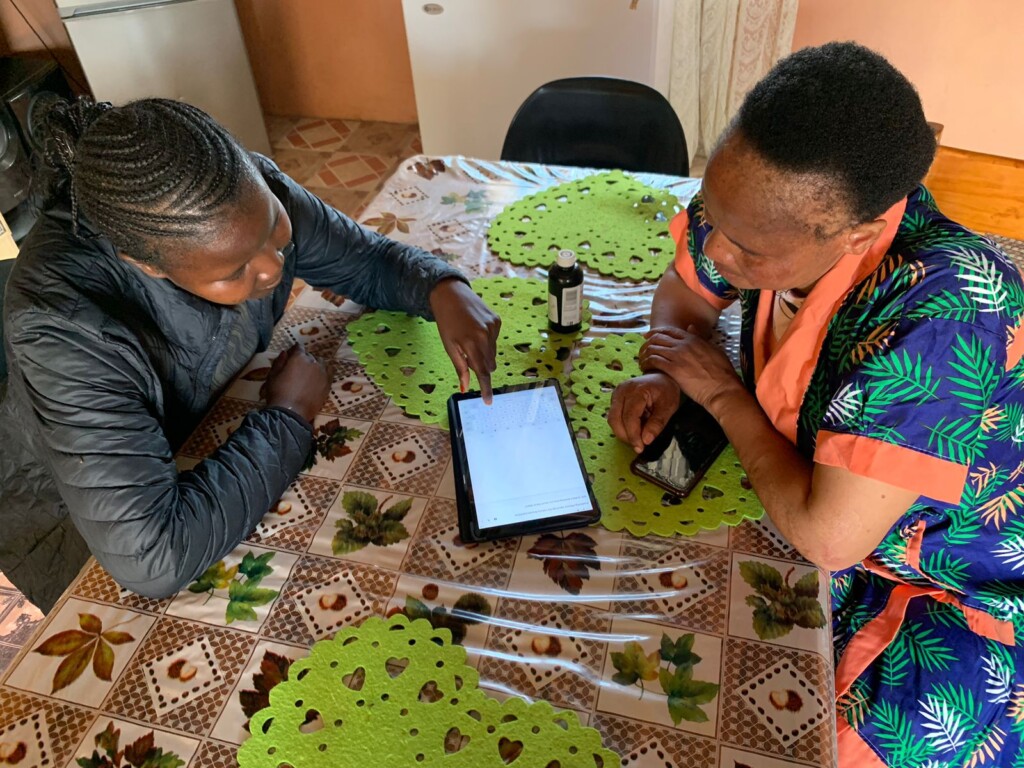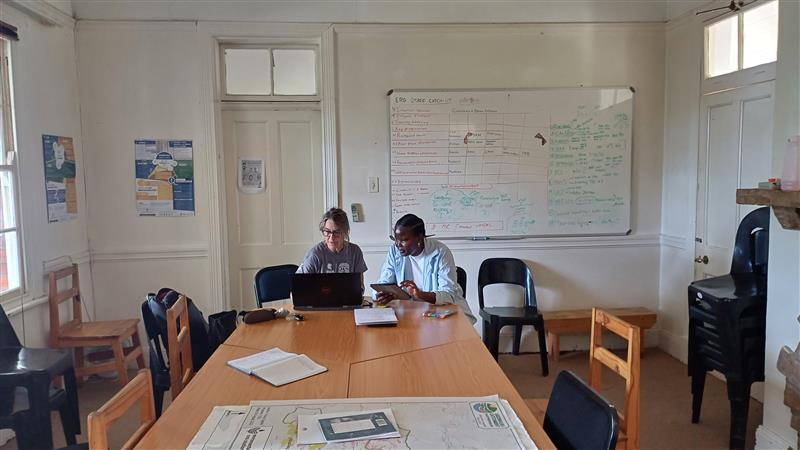More than 500 surveys to assess the current level of integration of climate services in nature-based solutions in sub-Saharan countries

ALBATROSS has conducted structured interviews in the communities where the seven CRD Network hubs are located, in order to provide a deeper level of analysis on the level of integration of climate services into nature-based solutions and other relevant adaptation options.
Led by the University of Cape Town partners at ACDI’s People in Nature & Climate Lab, the survey was developed together with research or NGO co-investigators situated in each of the five countries and who already work or do research within the hub location. At each location, a minimum of 70 representatives were selected to respond to the survey, 10 each from the following seven institutions:
- NGO: non-profit and non-governmental organisations
- Community groups: community-based organisations or institutions such as traditional leadership or informal community groups, local women or youth groups or farmer associations, or non-profit organisation affiliated with local community representatives
- Governments: central/national, provincial, local governments
- Parastatal or governmental agencies: semi-public institutions managed partially or wholly by government mandates
- Private: non-for profit organisations or companies
- Research: non-profit research institutions including public or private universities
- Inter-governmental: inter-governmental development or aid agencies
During the selection process, the research team made sure that representatives were either involved in or had knowledge of work and livelihoods connected to nature-based solutions within their institutions or community groups.
The aim was to ensure a broad focus on work and livelihoods. This included community-based institutions involved in livelihoods that depend on natural resources, such as pastoralism, rain-fed agriculture, home gardens, and non-forest timber products.
Additionally, the scope covered organisations that support nature-based approaches, including NGOs, government agencies, intergovernmental bodies, private and parastatal entities, research institutions, and community-based groups. These organisations contribute help to address various societal challenges, including climate change, by the design, planning, implementation, operation, management, and monitoring of nature-based solutions like alien plant management, wetland restoration, conservation agriculture, and sustainable grazing practices.
The data analysis of the survey responses will help researchers assess the climate services required at different levels and for different stakeholders for subnational adaptation planning and decision-making, with a particular focus on nature-based solutions in the CRD Network Hubs. They will also identify the appropriate delivery pathways and timing required for these climate services to reach organisations and people in an appropriate way.


Kwanele Siyengo (Umzimvubu Hub Field Assistant) and Glynis Humphrey (Umzimvubu Hub Coordinator) collaborating on the Climate Services survey’s in preparation for fieldwork with participants in the Umzimvubu Catchment, Eastern Cape, South Africa
Kwanele Siyengo (Umzimvubu Hub Field Assistant) engaging with a stakeholder in the Umzimvubu Catchment in the Eastern Cape, South Africa